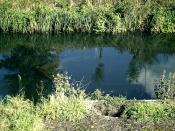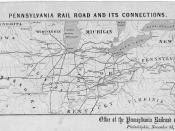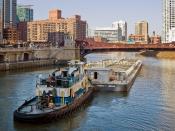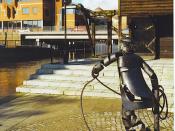United States v. Carroll Towing Co., 159 F.2d 169Facts:The Anna C. was tied along with 6 other ships to the pier. The harbor master failed to properly strengthen the ropes connecting the flotilla to the tier, and the bargee had left the ship the day before and was not present. The flotilla broke loose, and the Anna C. hit a tanker and started leaking. The Grace (Grace Line) and Carroll (The Carroll Co.) could have saved the Anna C., but as the bargee was not present they were not aware of its leakage. The Anna C. sunk.
History:First filed in the District court of the United States of America for the Eastern District of New York. The Pennsylvania Railroad Co. was sued by the Conners Marine Co., and the Pennsylvania Railroad Co. won. The Grace Line Co. was sued and defeated by Carroll Towing Co. Grace Line Co. appealed.
Issues:1. Whether a barge owner should be considered slack in the care of his barge if the bargee is absent.
2. Whether it is a fair requirement for a bargee to remain aboard the barge during the working hours of daylight.
Holding:1. Yes, however "there can be no such general rule"2. YesReasoning:1. Barges break from time to time and it cannot be ruled that every time a barge breaks, the owner is liable. So how is liability determined? The court came out with an algebraic equation. If P (probability of barge breaking away) x L (the gravity of resulting injury) > B (the burden of adequate precautions) = liability exists. There are social interests for the bargee to have some freedom of movement. But in the current case, the bargee was away from the barge for about 24 hours. His fabricated story shows that he has no legitimate excuse for his absence. So in the current case, PL > B. Therefore, the court held "that it was a fair requirement that the owner of the barge, should have a bargee abroad unless he had some excuse for his absence, during the working hours of daylight."2. Although it is expectable for a bargee to go ashore at times, in this situation the bargee was ashore for over 21 hours with no excuse. It is excusable to go ashore, but the general requirement is for a bargee to stay onboard the majority of the time.





